Royal Engineers in Sierra Leone water project
British Army engineers are involved in a pioneering drilling project to bring clean water to thousands of people in Sierra Leone.
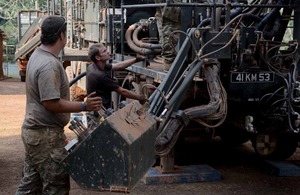
Lance Corporal Patrick Crowe and Lance Corporal Liam Beach at work on a pump installation [Picture: Corporal Andy Reddy, Crown copyright]
As a result of this project, fresh water will be delivered to more than 6,500 people where it is scarce and the threat of illnesses like cholera is high as people are forced to use water in contaminated rivers and puddles for drinking and cleaning.
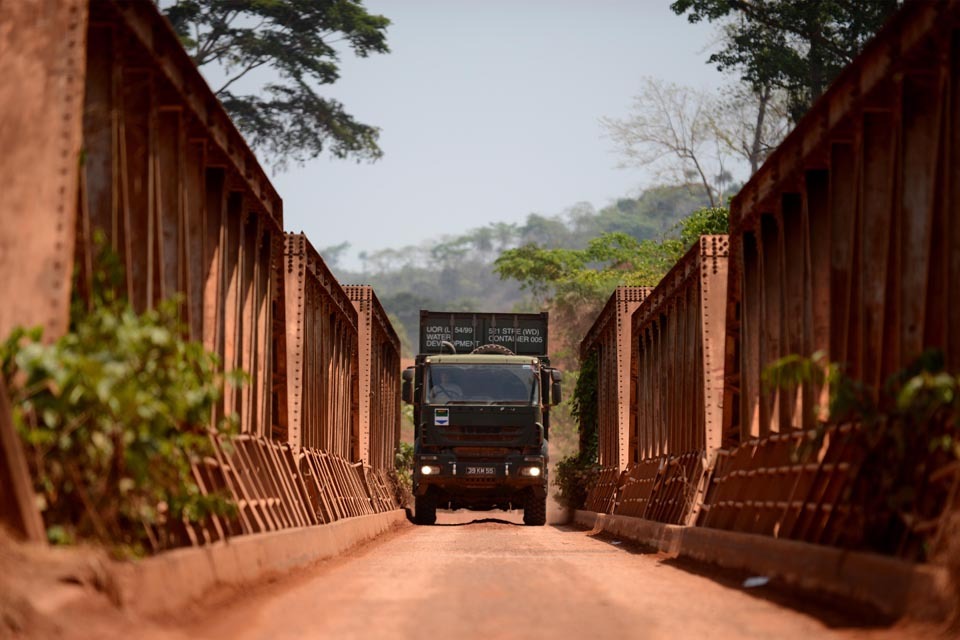
A 521 Specialist Team Royal Engineers (Water Development) vehicle crosses a bridge in Sierra Leone [Picture: Corporal Andy Reddy, Crown copyright]
A team of 15 soldiers, predominantly from 521 Specialist Team Royal Engineers (Water Development) based in Chilwell, are drilling and then installing 11 water pumps at Republic of Sierra Leone Armed Forces (RSLAF) bases in remote locations across the country.
Running water
The supply of fresh water from wells drilled 80 metres deep into pure water streams can mean the difference between life and death for residents of the army camps, which support not only the troops but also their families and elements of the local community.
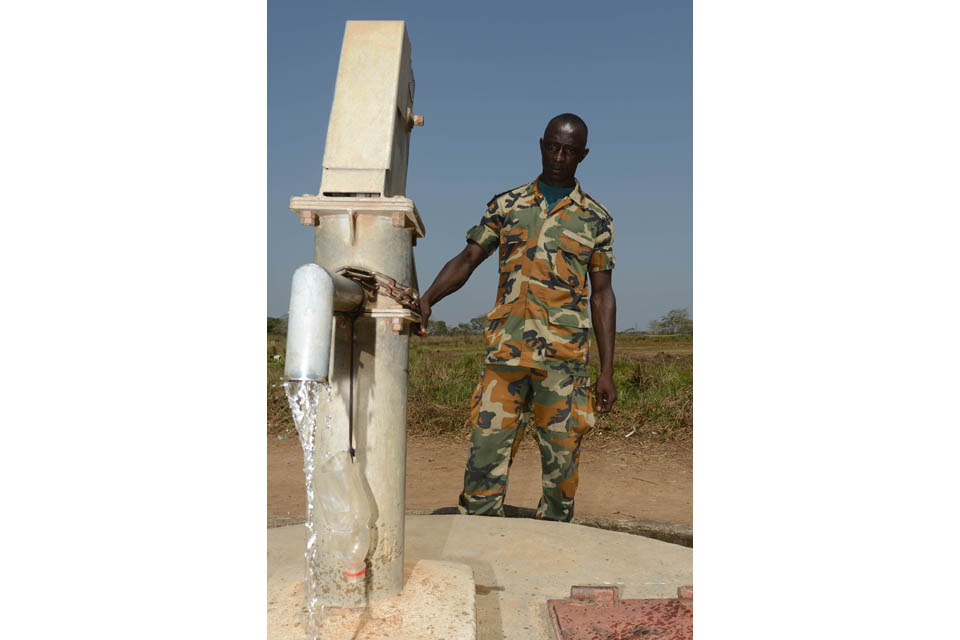
Republic of Sierra Leone Armed Forces engineer Corporal Aiah Alimany at the old Daru water pump [Picture: Corporal Andy Reddy, Crown copyright]
Corporal Aiah Alimany, 1 of 5 RSLAF engineers working alongside the British team, explained:
These wells will make a very big difference to us as they bring clean water all year round. In the past we had diseases that killed many soldiers and their families because they were using contaminated water, but now, thanks to these pumps, we know that we won’t have that problem again.
The RSLAF engineers will be responsible for maintaining the wells and pumps, which have a 10-year life span, but have also been sharing their construction knowledge with their British counterparts.
Sapper Ben Seaton, whose younger brother, Trooper Josh Seaton, is currently deployed in Afghanistan with the Royal Dragoon Guards, said:
We take running water for granted in the UK, so being here and installing these pumps to give the RSLAF soldiers a continuous supply of water is very rewarding, but they’ve also showed us a trick or two when it comes to brickwork, block work and rendering.
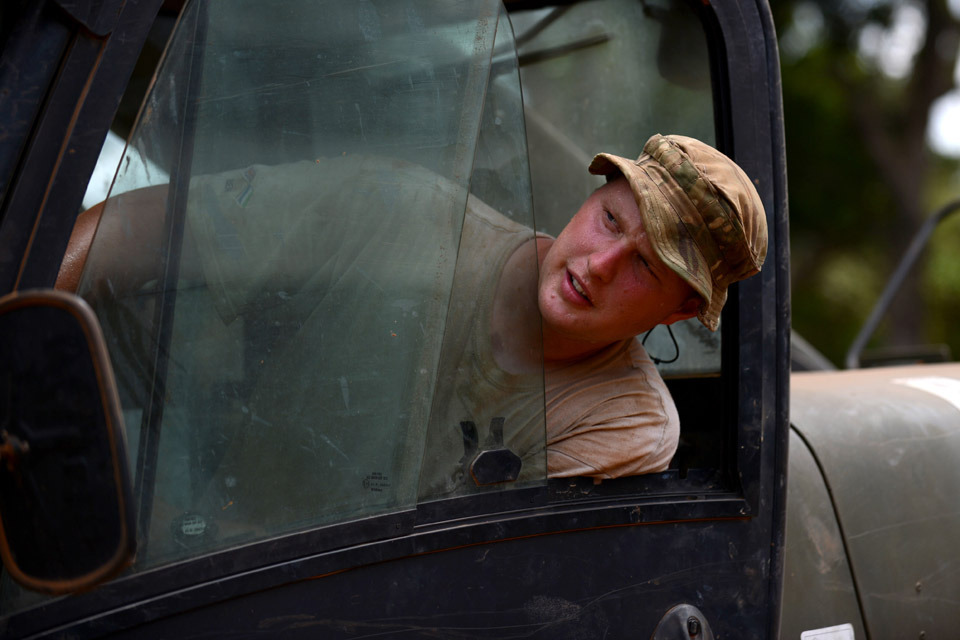
Sapper Ben Seaton working on a new pump installation [Picture: Corporal Andy Reddy, Crown copyright]
Sapper Seaton was expecting to be in Afghanistan with his brother, having also been there in 2010 when he was part of the Royal Engineers counter-IED route-clearing team:
I thought I would be in Afghanistan again now,” he said. “But I was posted to 521 Specialist Team Royal Engineers (Water Development) instead and am now in Sierra Leone doing a very different type of rewarding job where I am working on something that can change people’s lives.
As a plant operator by trade I’ve worked on a number of construction tasks that make people’s lives easier, but on this project we are making a major difference to people’s lives, which is very rewarding.

Captain Geoff Hill works the drills at the Gbangratok site [Picture: Corporal Andy Reddy, Crown copyright 2013]
Enduring solution
As part of the construction, the Royal Engineers are installing 90 metres of 12-inch metal casing to stop the soft upper soil falling in on the pumps, and 450 metres of 4-inch piping that insulates the pumps.
Captain Geoff Hill, the drilling officer for 521 Specialist Team Royal Engineers (Water Development), said:
This exercise has been a huge logistical challenge in terms of the distances and condition of the roads between the sites across Sierra Leone.
But what it leaves is an enduring solution that provides water to remote RSLAF bases so they can be operationally effective, using pumps that can be maintained by RSLAF engineers in wells that can also be used by the local community - which further improves the partnership between the military and the civilian community, but at its core also improves the hygiene and sanitation of everyone in the local community to reduce the number of people who needlessly become ill through water-borne diseases.
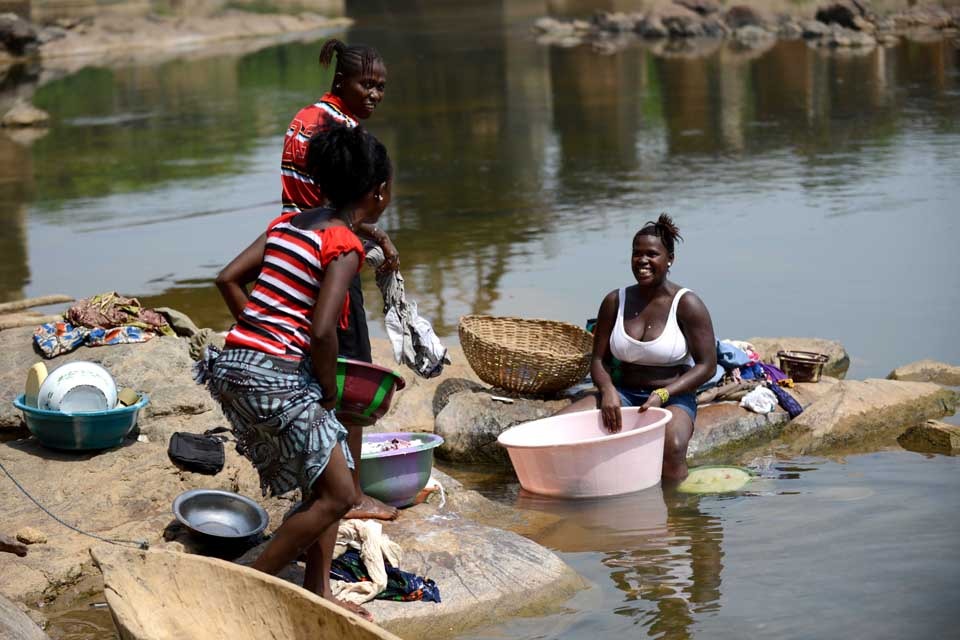
Women washing clothes by a river in Sierra Leone [Picture: Corporal Andy Reddy, Crown copyright]
The £250,000, 2-month project is being done at the request of the International Military Advisory and Training Team (Sierra Leone), a multinational military mentoring team commonly known as IMATT, as a legacy gift to better enable the RSLAF to sustain themselves after 13 years of international military mentoring.
IMATT’s mission is to help develop the RSLAF into a democratically accountable and sustainable force in the country after the conclusion of hostilities.
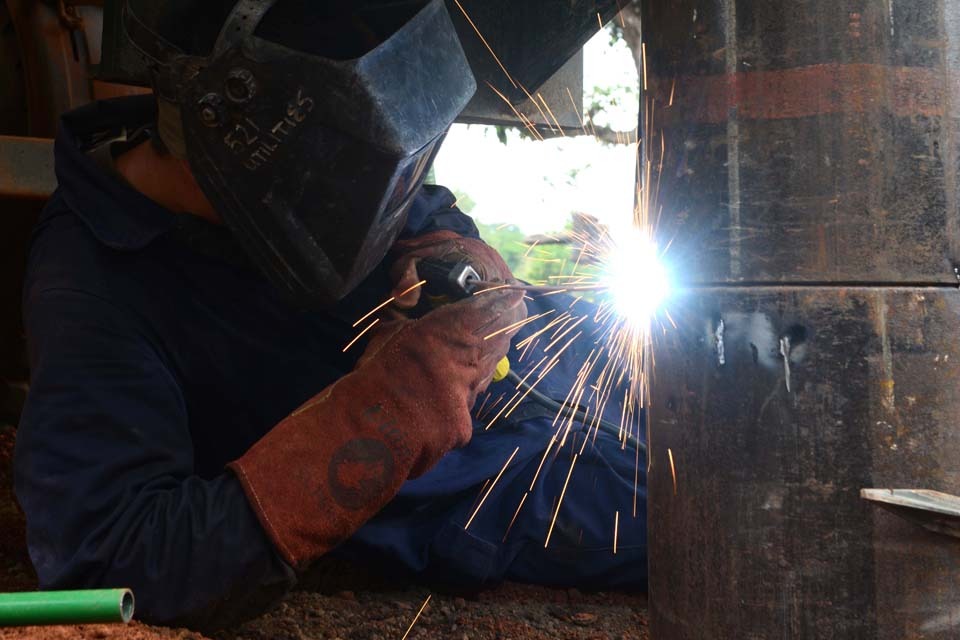
A Royal Engineer at work on one of the pump installations [Picture: Corporal Andy Reddy, Crown copyright]
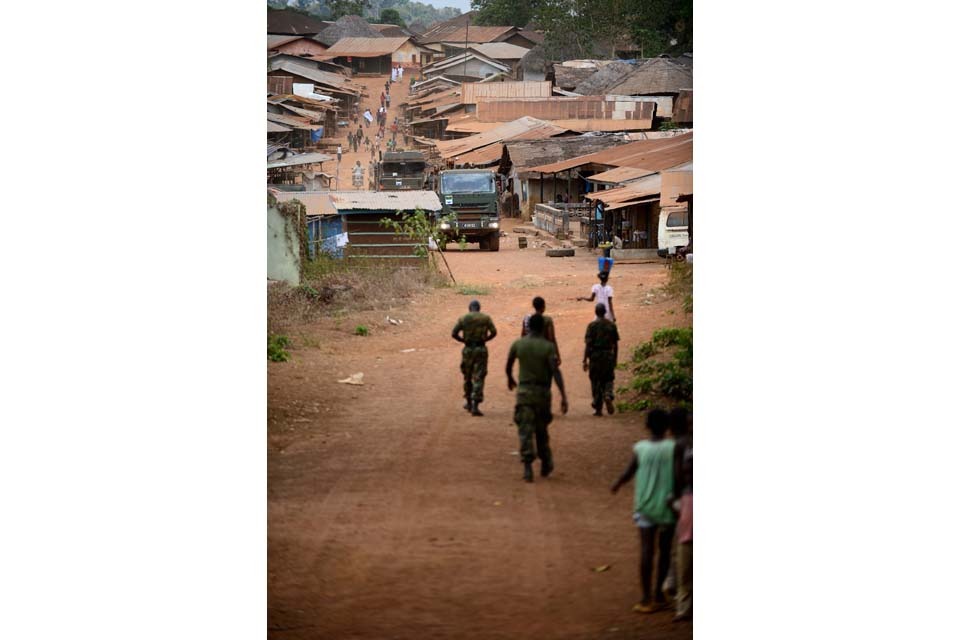
The military engineers drive through a town in Sierra Leone [Picture: Corporal Andy Reddy, Crown copyright]
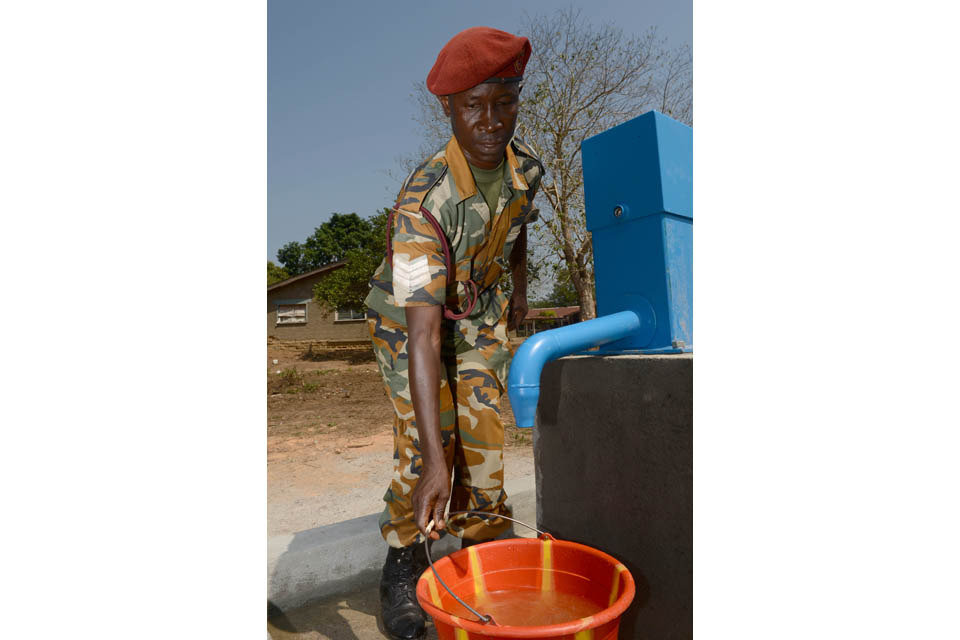
Medical officer Sergeant Ishmael Unisa Turay of the Republic of Sierra Leone Armed Forces at the new Daru water pump [Picture: Corporal Andy Reddy, Crown copyright]
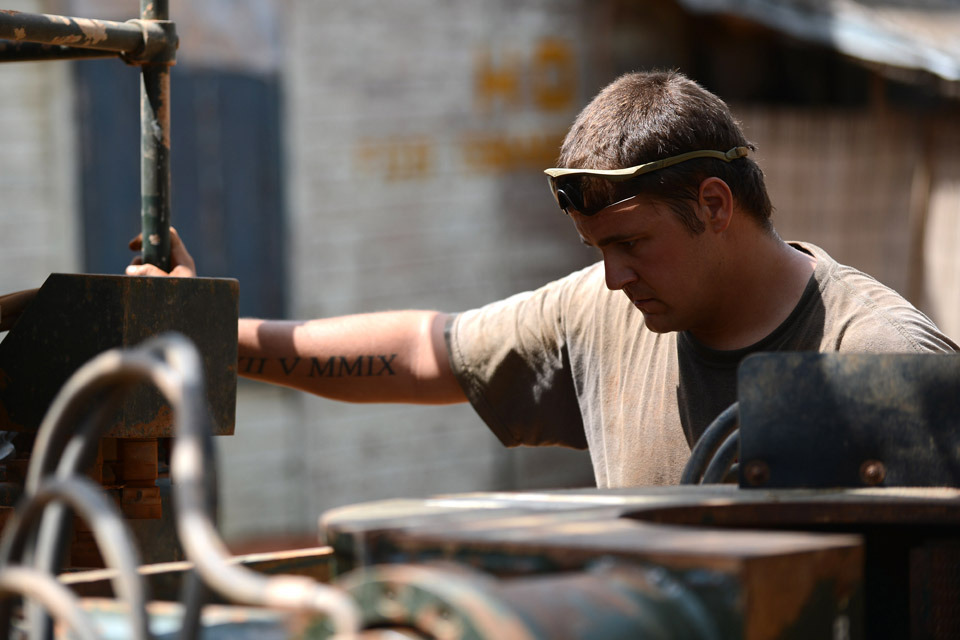
Lance Corporal Patrick Crowe examines a drill rig [Picture: Corporal Andy Reddy, Crown copyright]